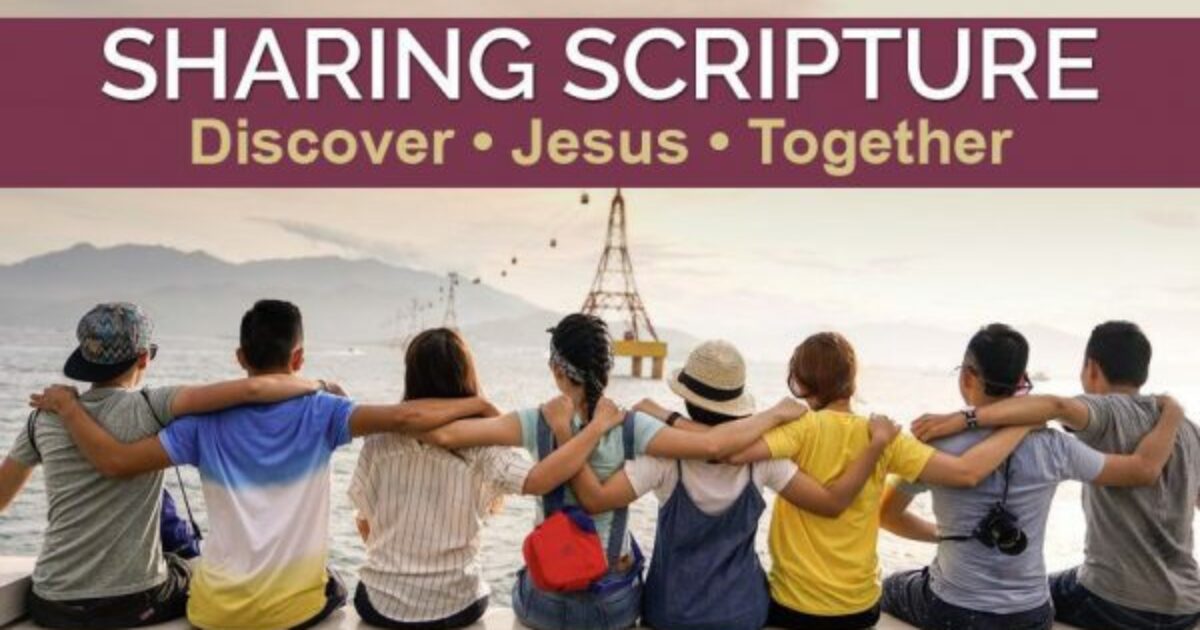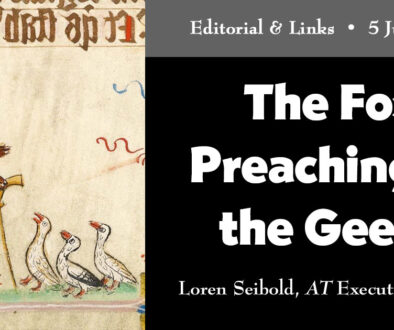Sharing Scripture for July 7 – 13
[symple_heading style=”” title=”Blueprint for a Better World” type=”h1″ font_size=”40″ text_align=”center” margin_top=”0″ margin_bottom=”30″ color=”undefined” icon_left=”” icon_right=””]
This is a tool for you to use if you lead a Sabbath School (SS) class or small group. It is keyed to the Bible texts used in the current week’s Adult SS Lesson and includes a brief story from current news you can use to introduce the discussion and then a series of discussion questions in a relational pattern designed to build fellowship and spiritual reflection.
For use: July 7 – 13
Texts: Exodus 3:7; Matthew 22:37-40; Exodus 22:21-23; Deuteronomy 14:22-29; 26:1-11; Leviticus 25:9-23
Is cancelling some or all student-loan debt fair?
A major criticism of the debt forgiveness plan is that it is a giveaway to wealthier borrowers. For example, some oppose the idea on the grounds that those with higher debt loads tend to already have higher incomes. In fact, data from the Survey of Consumer Finances suggests that student-loan borrowers are actually fairly well-off. (Their research focuses on the incomes of household breadwinners. The survey includes questions regarding student-loan debt.)
A closer look at the survey, however, indicates that it does not take into consideration a key borrower demographic: students who move back in with their parents. In those cases, it is the parents’ incomes that are measured and not that of the actual borrowers. There is no good data yet to measure the actual financial situations of these boomerang children. Even though it appears that student-loan borrowers are in deeper financial straits than originally thought, the debate on canceling this debt will not go away quickly or easily. [1]
How can we really tell who will benefit from financial assistance, and who are merely enabled to continue living lives marked by bad choices? This week’s lesson looks at God’s plan to minimize the gap between rich and poor. The lesson begins with a reminder that God hears the outcries of the oppressed. That is starkly illustrated in the experience of the Israelites in Egypt. God said, “I have heard (my people) crying out because of their slave drivers, and I am concerned about their suffering” (Exodus 3:7). Because of that concern God sent a series of plagues on Egypt to end that oppression.
Probably the most radical social justice plan ever conceived is the Year of Jubilee. God understood that some families could fall under hard times and may have to sell off their lands to survive. Some may even need to sell themselves into servitude. God was very specific about how these people were to be treated: “Do not make him work as a slave. He is to be treated as a hired worker” (Leviticus 25:39-40). That servitude ends on the Year of Jubilee, no matter how many years the servant has actually worked. God intended that society should be reset every 50 years, with property and personal freedoms restored no matter if people were victims of unfortunate circumstances or their own poor choices. God made no distinction.
God’s plan for social equity can be summed up in one simple phrase: You shall love your neighbor as yourself. The discussion around this concept usually contains such arguments as “tough love” versus “unconditional love.” The debate about how to best help the poor and marginalized in society will probably continue until Jesus comes, but one thing is certain—God still hears the cries of the oppressed.
Connecting: Distribute a pile of play money among the members of your group. Give most of the money to two or three people, while the rest just get a pittance. The rich will now plan a program to aid the poor, with a mixture of work options, loans, and giveaways. As the poor receive the aid, they will declare what they plan to do with the money. Discuss: Which of these three aid options is the best way to help the poor?
Sharing: We don’t see any evidence that Israel followed through with God’s plan for the Year of the Jubilee. Why do you think that is?
- They may have observed it, but just not reported it in the biblical records
- If they missed one Jubilee cycle and God didn’t punish them, then it became easier to just overlook it the next time also
- The people didn’t have easy access to the Scriptures, so they just forgot about it—out of sight, out of mind
- Those who had accumulated the wealth during those 49 years probably resisted giving it all back and starting over again
- This was really just given as an illustration that they were to take care of each other; God never really intended them to go through with it
- Other:
Applying: Clara Barton is credited with the saying “Offering a hand up is not a hand out.” Brainstorm practical ways that you can offer a hand up to someone in your community this week. How can you do this in ways that don’t give the appearance of a handout?
Valuing: Do you value people over things or money? How do you know? Pray that God will show you the true condition of your heart in these matters.
~Charles Burkeen
[1] https://www.marketwatch.com/story/are-student-loan-borrowers-poorer-than-we-think-2019-06-28




